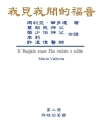In ‘The Essential Faith of the Universal Church; Deduced from the Sacred Records, ‘ Harriet Martineau presents a thoughtful exploration of religious doctrine, meticulously drawing upon sacred texts to distill the core tenets of Christianity. Employing a clear and analytical literary style, Martineau engages with theological concepts in a manner that is both accessible and profound, appealing to both lay readers and scholars alike. Situated within the burgeoning interest of the 19th century in rational faith, this work reflects the era’s Enlightenment ideals, striving to reconcile empirical reasoning with spiritual belief, illuminating the shared threads across diverse Christian denominations. Harriet Martineau, a pioneering sociologist and advocate for social reform, was deeply influenced by her own religious upbringing and her evolving views on morality and ethics. Her early exposure to Unitarian thought, coupled with her later skepticism towards orthodox beliefs, informed her quest to uncover an essential, universal faith that transcended sectarian divisions. Martineau’s background in journalism and philosophy further equipped her to engage with complex ideas in a manner that was compelling and thought-provoking, positioning her as a significant voice in the discourse surrounding religion and society. For readers seeking a nuanced understanding of Christian faith that moves beyond dogma to seek commonality, Martineau’s work is an invaluable resource. Her methodical examination of sacred texts invites readers to reconsider their perceptions of faith and encourages an inclusive dialogue that resonates with contemporary theological discussions. Immerse yourself in Martineau’s profound insights, and discover a thoughtful approach to the essence of belief.
Tentang Penulis
Harriet Martineau (1802-1876) was a distinguished English social theorist and Whig writer, often cited as the first female sociologist. With a prolific career stretching across various domains, she was a groundbreaking academic whose works encompassed economics, political theory, religion, and gender relations. Martineau gained considerable acclaim for her comprehensive work ‘The Essential Faith of the Universal Church; Deduced from the Sacred Records’ (1839), which underscored her intellectual prowess and deep engagement with theological debates of her time. This work, among others, unveils Martineau’s innovative approach to interpreting biblical teachings through a deductive methodology, thus reflecting her rationalist perspective and fervent support for universalist faith principles. Her literary style, characterized by clarity and an educative purpose, made her ideas accessible and influential beyond academic circles (Hoecker-Drysdale, 1992). A trailblazer for women in academia, Martineau’s contributions laid essential groundwork for critical thought in the sociological and theological arenas, and her books remain significant for scholars interested in feminist theology and early social theory (Postlethwaite, 1989).












